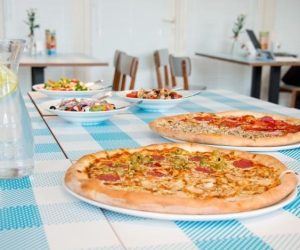Last year saw political, economic and social change, leading to differences in the way hotels and restaurants operate. Embracing innovation is a prerequisite for establishments to thrive and survive. Here we explore the top five food trends that occured in 2018.

Image Credit
1 The rise of vegetables
Vegetables are taking pole position in restaurant kitchens right now. Starters
like cauliflower ‘steaks’ from the grill and jackfruit tacos are commonplace.
Companies producing artisan vegan cheese – a hot property right now – include
Kite Hill from Silicon Valley, while faux foods such as turkey, feta and bacon
can be sourced from vegan delis.
2 Dealing with waste
Creative methods to use, reduce and combat trash are seen all over the food
industry. The company Imperfect Produce delivers discount-price ‘ugly’
produce. Meanwhile, startups such as Plenty and Iron Ox bring hydroponic
farming methods to the masses. As well as tackling food waste many companies
looked at the disposable items that they were using and switched to food grade
Silicone Moulds that are available from companies such as https://www.meadex.co.uk/materials/silicone/ instead.

Image Credit
3 Avoid the hard sell
Marketing that sells a lifestyle rather than pushing products heads a new
wave: hotels and restaurants promote concepts that appeal to residents’ and
diners’ life goals and aspirations.
Community events and a focus on fashion also reflect this spirit, as do
partnerships that tell an all-inclusive tale instead of pushing beverages and
food. It’s all about creating an entertaining, humanising narrative.
4 Superfoods rule
Purple foods such as blueberries contain antioxidants which may stop free
radicals from damaging cells. Mushrooms have unexpectedly popped up in broths,
coffees and teas, and microgreens combine superfood power and colour in a
double whammy. Vegetables are now mainstream, and diners expect options.
5 Making it personal
We are living in an era of speed, quality and customisation. Flexible food
experiences are available to suit everyone, and solutions are more inventive
than ever before. However, made-to-order requires hard work and poses a
challenge for operators of pre-packaged foods where customisation isn’t
applicable. Among the successes are Sally the Salad Robot’s flexible, fresh
custom salads. Tailoring has led to the rise of the ‘goodies-only’ salad –
everything but the lettuce.
Change keeps coming. In the hospitality and food-service industries, we need
to encourage each other, adapt, innovate ways to produce and dispose of
food. After a bit of turbulence, the future looks
bright.




